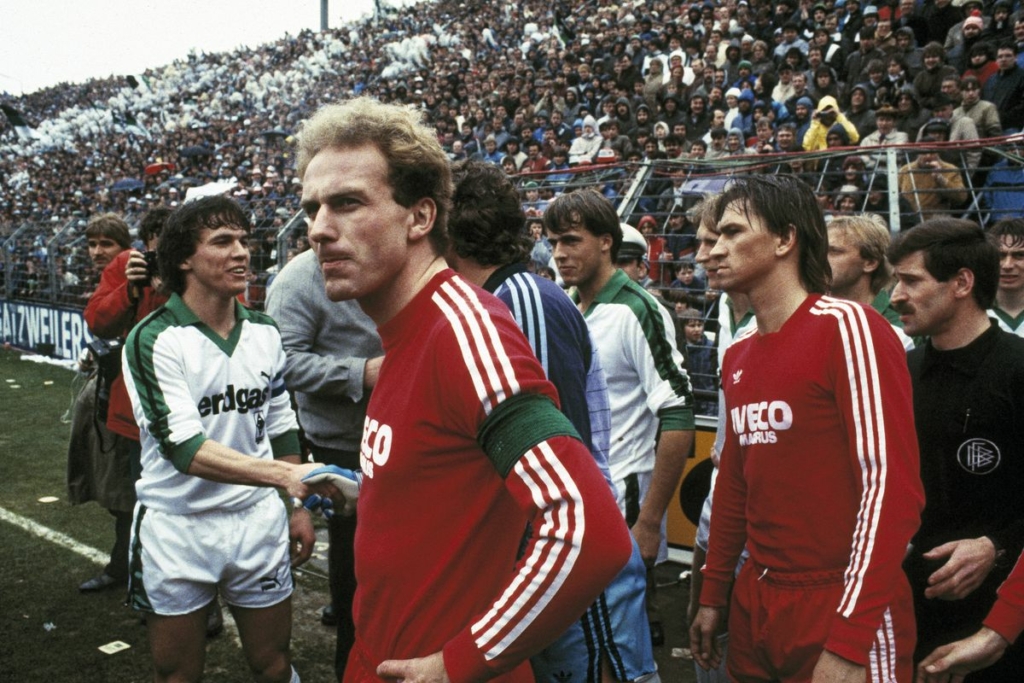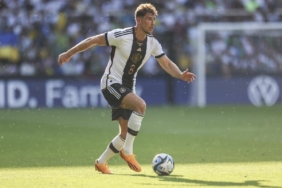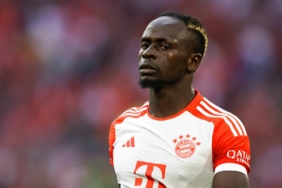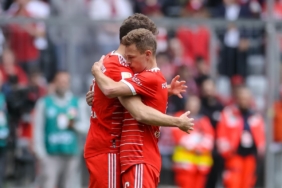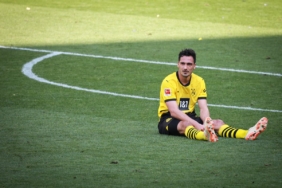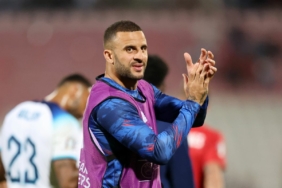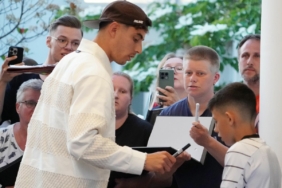When I saw the idea of this series circulating around the BFW Slack channel, I thought it would be an impossible task. Having watched decades of both great and loveable players come and go at Bayern Munich, how could I narrow it down to just two? Despite my initial trepidation I decided to rise to the challenge and select the two players I miss seeing play the game the most for Bayern, and one who never played for our beloved club.
Karl-Heinz Rummenigge
Long before he was an era defining executive, our mighty Kali was the best player in the world. And he’s got two Ballon d’Ors to prove it.
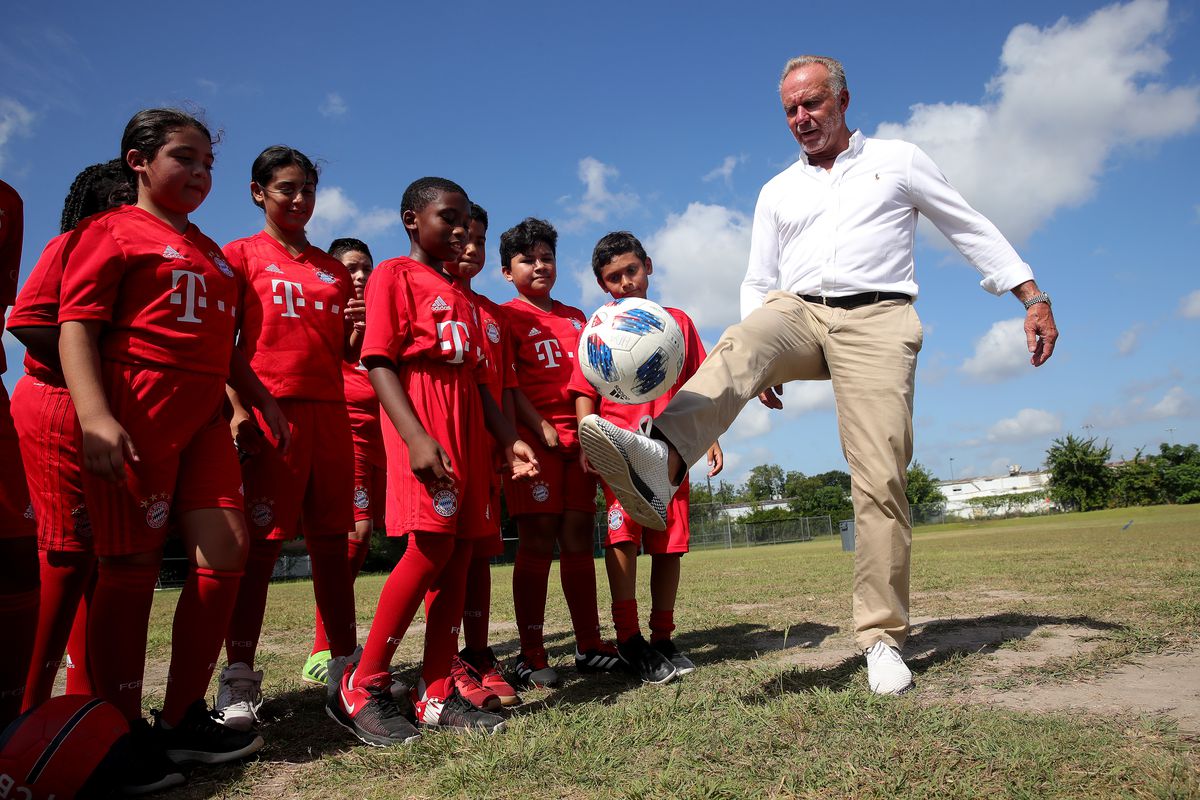
Karl-Heinz didn’t always appear destined for sporting greatness though. As a young man he thought he would not make it as a footballer and studied banking, and was working as a banker when he broke in as a pro. Nerves often also got the better of the junior player as he was surrounded by some of the German greats of the era and he started a habit of having a glass of Brandy before each match to calm his nerves.
Once he hit his stride though, he was simply sublime. His speed, strength, directness and will to win were unparalleled. With the ball at his feet, he was an irrepressible physical presence who exuded an “I will not be denied” attitude. Combined with a deep knowledge of the game, he became the best player in the world, inspiring a pop song and a cult following in the United States. Perhaps the final indicia of his greatness was the fact that when the club sold him to pay off all of it’s debts, the transfer fee was the largest ever paid up to that point in time.
Klaus Augenthaler
When we think of classic Liberos, Franz Beckenbauer immediately comes to mind, and he was a strong contender for this second slot. But with his silky grace, preternatural timing, vision and accuracy, he was almost too good to give this tribute to.
Instead it goes to the man who played the same role on the squad and became an incredible workman and title hunter in his own right, Klaus Augenthaler.
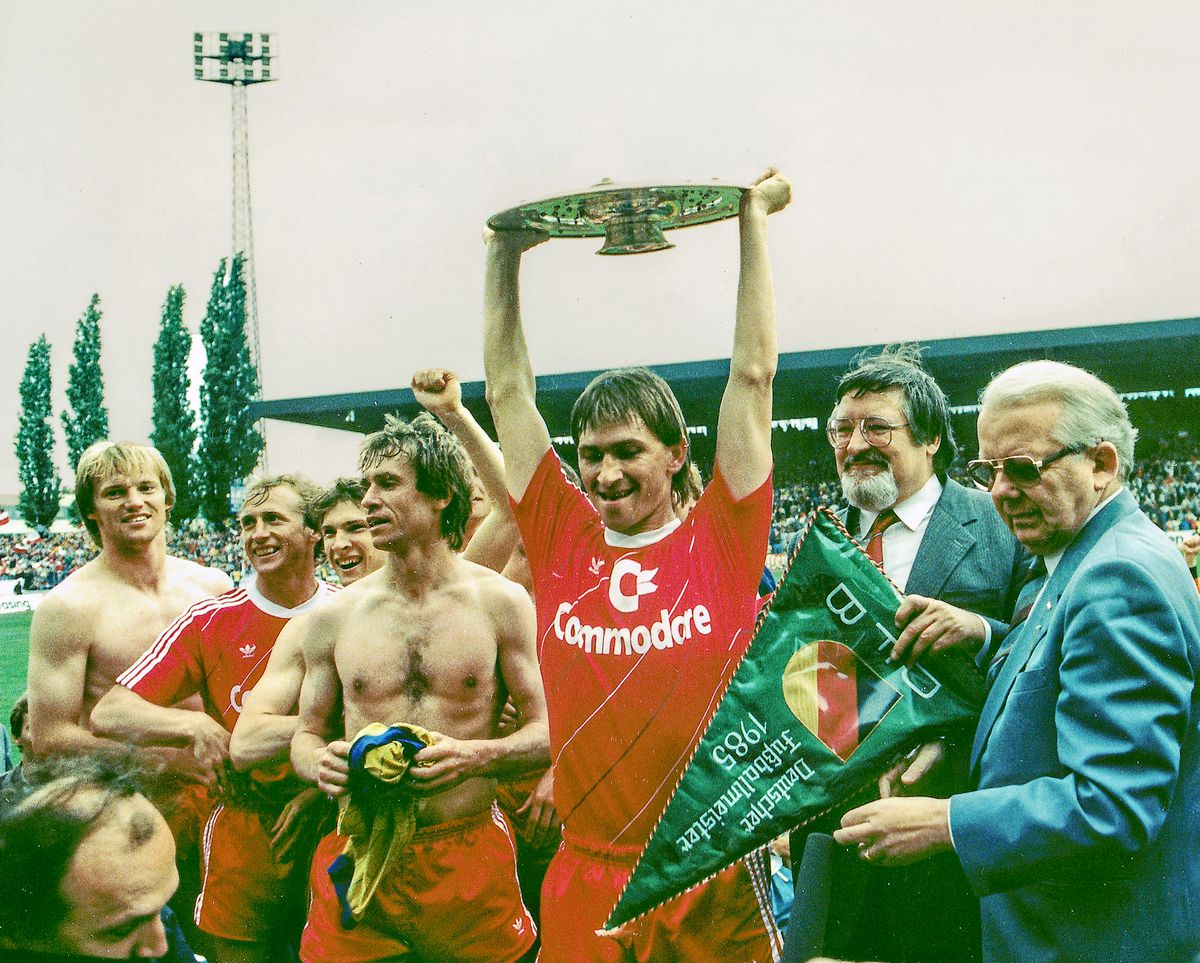
No one was ever going to mistake Klaus Augenthaler for Beckenbauer even though they played the same position. While der Kaiser played the spot like an artist painting with a brush, Auge played the sweeper spot like a master carpenter with a hammer. His vision was impeccable and his timing perfect as he closed holes in the back and recovered the ball from opposing players the hard way.
Over his lengthy career at Bayern he pursued silverware with an insatiable hunger, retiring with seven league championships to his name — which was, for a lengthy period, the most titles ever won by a German player. And just to top it off, he added a hard backbone to the German squad that won the World Cup 1-0 over Maradona’s Argentina in 1990.
That just leaves us with one non-Bayern player to choose. A near impossible task. Peter Shilton, Bruce Wilson, Michele Platini, Dino Zoff, Roberto Bettega and Michael Konzel (a great sweeper-keeper) all spring to mind. But after much deep pondering over rusty nails and red wine the winner is:
Non-Bayern player: Johann Krankl
This Austrian carried Rapid Vienna to great heights in the 1970’s. He not only dominated the Österreichische Fußball-Bundesliga but made his mark in international football as well.
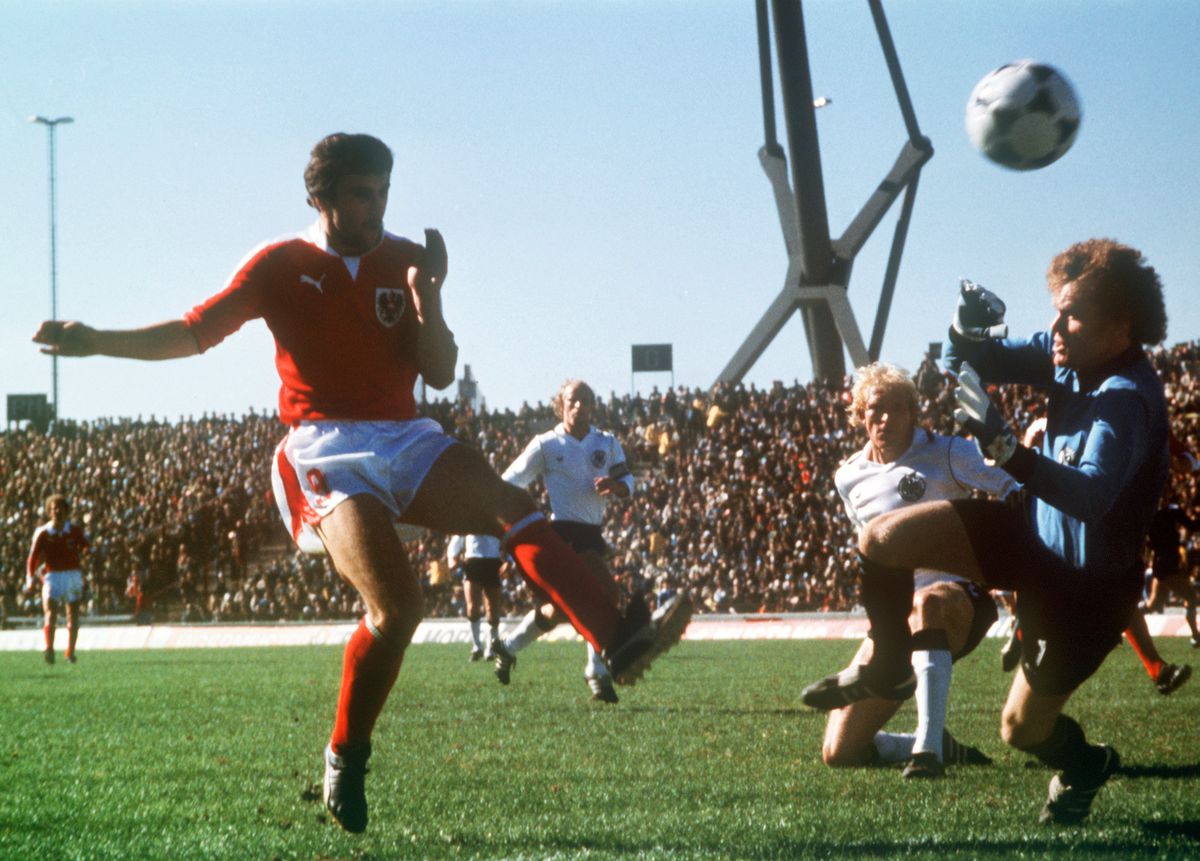
In 1978 Hans won the European Gold Boot with 41 goals, which attracted the attention of a certain Catalan club. Krankl moved to FC Barcelona for the next season and in his first (and only year) at that club, led the Spanish League in scoring with 29 goals adding the Pichichi trophy to his cabinet as well as the UEFA Cup Winners Cup. Apparently having grown bored with the Spanish league he returned to Austria, where he would go on to score a further 107 goals for Rapid.
While his career numbers are impressive enough, some players (like Paul Henderson who scored for Canada to beat the Soviets in the 1972 Summit Series) are defined by one bright shining moment of unforgettable glory.
Krankl’s moment came in the 1978 World Cup match against West Germany. Austria was eliminated, and the Germans (as it turned out) would have gone through with a tie or win. Despite having nothing to play for, the sporting rivalry between the two nations runs deep and the Austrians fought hard to deny the Germans the chance to move on. In the 87th minute, with the score tied 2-2, the Miracle of Cordoba happened:
3-2 to Austria and surely the greatest goal call in the history of the German language

